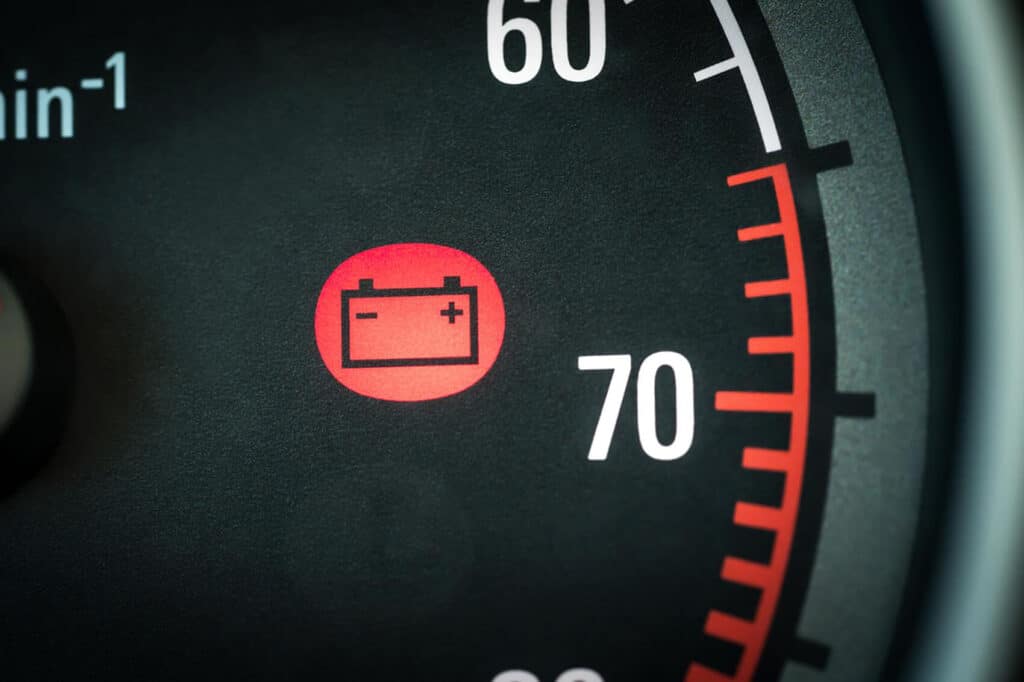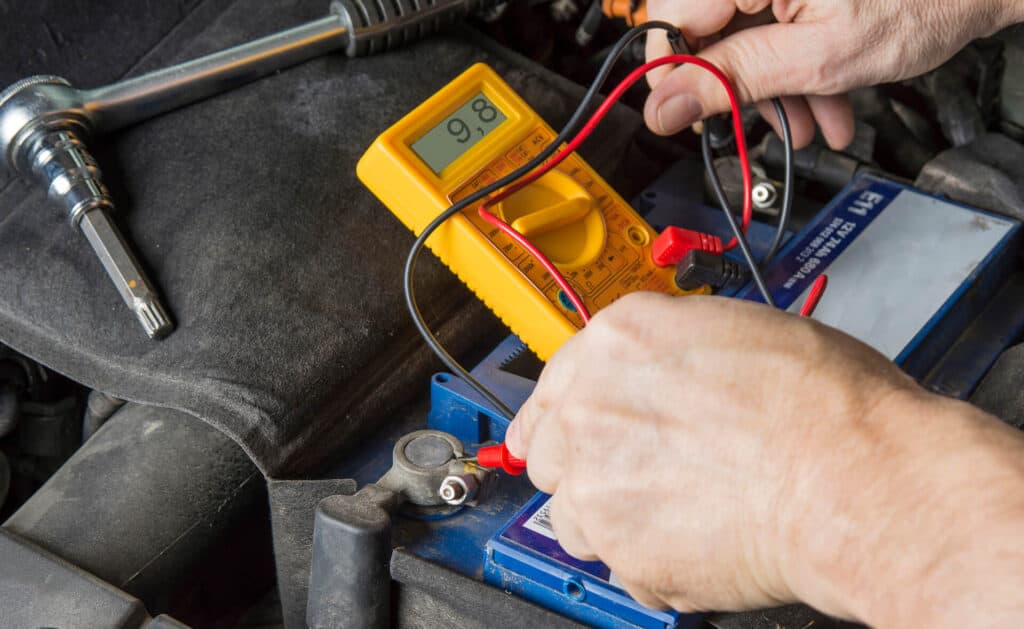Car batteries can be a mysterious and challenging component to diagnose. Understanding common misdiagnoses is crucial in avoiding unnecessary costs and ensuring the health of your vehicle. Unlike other mechanical parts, batteries don’t often show clear physical signs of wear or damage. Their performance may decline gradually, and symptoms may be subtle or even misleading. This makes proper diagnosis essential but often tricky, even for professionals. Misdiagnosis could lead to replacing a good battery unnecessarily or overlooking a failing battery, resulting in unexpected breakdowns or more significant damages. Thus, knowing how to correctly diagnose a battery’s condition is vital for every car owner.
The Good, The Bad, and The Confusing: Can a Car Battery Test Good and Still be Bad?
Can a car battery test good and still be bad? Surprisingly, yes. A battery may appear fine in routine checks but still have underlying issues. This contradiction can be puzzling for both professionals and DIY enthusiasts. Sometimes a battery may pass a standard voltage test but fail under the load test, meaning it can’t provide enough power when needed. The hidden problems might be due to damaged cells or a bad connection that only manifests under certain conditions. Furthermore, simple tests might not detect issues related to the battery’s age, capacity, or how it interacts with the car’s charging system. Being aware of these possibilities and seeking professional help like for a comprehensive evaluation can prevent unnecessary replacements and assure the battery’s reliability.

Top Common Misdiagnoses for Dead Batteries: When Intuition Leads You Astray
In a world where we’ve become more reliant on the almighty Google search for quick answers, here’s something to ponder: Did you know that approximately 54% of car repairs are misdiagnosed each year? And a large chunk of these involve the often-overlooked car battery. Here are some of the top common misdiagnoses when your battery seems dead but isn’t quite ready to say its final goodbyes:
• Faulty Alternator: People often mistake a bad alternator for a dead battery. Both can lead to issues like dimming lights and poor ignition, but the alternator is what charges the battery while driving. A failed alternator can’t recharge a battery, making the battery appear “dead.”
• Bad Starter: A bad starter can mimic a dead battery. If you hear a clicking sound but the car won’t start, your first instinct might be to blame the battery. However, the starter motor could be the actual culprit.
• Corroded Terminals: A layer of corrosion on the battery terminals can disrupt the electrical flow. You might think the battery is dead, but cleaning the terminals could solve the problem.
• Fuel System Issues: Sometimes, the problem isn’t with the electrical system at all. Clogged fuel filters or defective fuel pumps can prevent the engine from starting, mimicking a dead battery.
• Dead Key Fob: In modern cars with push-button starts, a dead key fob battery can render your car unresponsive, making it easy to blame the car battery.
• Electrical Parasitic Drain: Overnight battery drain can be misdiagnosed as a “bad battery,” but the real issue might be an electrical drain somewhere else in the system.
• Fuses and Relays: These tiny components can have a big impact. A blown fuse or a bad relay can prevent power from reaching the battery or starter, leading to false assumptions about a dead battery.
Decoding the Problem: Strategies to Diagnose a Bad Car Battery
How do you diagnose a bad car battery? The strategies for diagnosis are vast, and understanding them can save you time and money. Simple visual inspections can provide immediate clues. Look for signs of wear, corrosion, or swelling, which might indicate an underlying problem. Additionally, listening for slow cranking or clicking noises during ignition can point to battery issues. Professional services like Uchaincs can further evaluate the battery’s health with specialized tools and expertise, offering a more comprehensive understanding and actionable recommendations.
Home Testing: How to Assess Your Car Battery’s Health without a Multimeter
How to test a car battery to see if it’s bad without a multimeter? Home testing can be an efficient and budget-friendly way to assess the battery’s health. One basic method is to turn on the headlights before starting the engine. If they dim significantly during ignition, it might signal a weak battery. Another trick is to start the car and disconnect one of the battery terminals. If the engine dies immediately, it may indicate a battery issue. Remember, these home tests are not foolproof, and it’s always best to seek professional assistance like Uchaincs for an accurate diagnosis.
Navigating the Unknown: Using a Multimeter to Determine if the Alternator or Battery is at Fault
How to check if the alternator or battery is bad with a multimeter? Multimeters are versatile tools that can help you pinpoint whether the issue lies with the battery or alternator. Start by setting the multimeter to the 20V DC setting, and then connect the probes to the battery terminals (red to positive, black to negative). A healthy battery should read around 12.6 volts. Next, start the engine and check the reading again. If the alternator is working correctly, the voltage should increase to around 13.7-14.7 volts. If it doesn’t, the problem might be with the alternator. Again, professional testing is recommended for a precise assessment, as these electrical systems can be intricate and sensitive to handle.
The Phantom Drain: Why Does a Car Battery Die After Sitting for a Few Days?
Why does my car battery die after sitting for a few days? It’s a question that plagues many drivers. This mysterious phenomenon is often referred to as “phantom drain.” Let’s explore some of the common causes and solutions:
• Parasitic Drain: Devices and systems in your car may continue to draw power even when the engine is off. These might include alarm systems, radio presets, or even a poorly installed accessory.
• Old or Damaged Battery: An aging battery or one with internal damage may lose charge more quickly.
• Environmental Factors: Extreme cold or hot weather can affect the battery’s ability to hold a charge.

Solutions
• Regular Maintenance: Professional services like Uchaincs can ensure proper checks and diagnose underlying problems.
• Smart Storage: If you know your car will be inactive for a while, disconnecting the battery or using a trickle charger can help.
Beyond Removal: Testing a Battery Without Taking It Out
Testing a car battery without taking it out is not only possible but also quite practical. Here are various ways you can do it:
• Using a Battery Tester: Many handheld testers can be plugged directly into the battery while it’s still in the car. These testers provide accurate readings without any need for removal.
• Dashboard Warning Lights: Some modern vehicles have built-in diagnostics that may warn you of a failing battery.
• Visual Inspection: Check for visible signs of wear, corrosion, or leakage. While this won’t give a detailed assessment, it may signal that professional testing is needed.
• Professional Assistance: A mobile mechanic company like Uchaincs can perform thorough testing without removing the battery, providing convenience and expert insight.
Both of these scenarios underline the importance of understanding your vehicle’s specific needs and having access to professional services that cater to those needs. Whether it’s the mystery of a phantom drain or the convenience of testing a battery without removal, having the right knowledge and tools can make all the difference.
So you think your battery is dead? Maybe, maybe not. The labyrinth of car diagnostics is often clouded with misleading signs that can divert you down the wrong path. But don’t fret. The right tools, knowledge, and a little professional help can guide you out of this maze. If you’re navigating the confusing byways of car battery health, remember that Uchaincs is your co-pilot. We provide comprehensive, accurate, and cost-effective mobile mechanic services across Canada, tailored to demystify any automotive enigma you encounter.
Now, what’s in it for you? The peace of mind that comes with knowing your car is in capable hands. Your next turn is clear: Contact Uchaincs today and steer away from the risk of costly misdiagnoses. Let’s drive that worry off the road.
